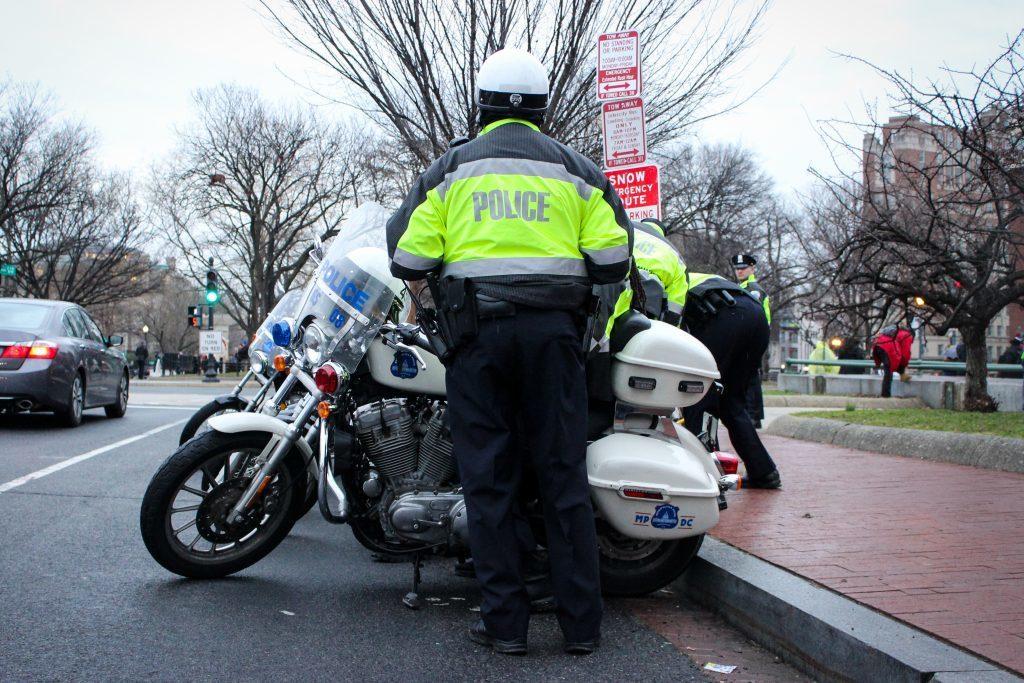A D.C. Council member is proposing that the Metropolitan Police Department create a Muslim liaison unit to address hate crimes against Muslims and to build a relationship with the community.
Ward 3 Council member Mary Cheh sent a letter to MPD’s Interim Chief of Police Peter Newsham Jan. 13, arguing for the creation of a liaison unit for Muslims. This liaison would add to the department’s existing groups for the deaf and hard of hearing, LGBT, Latino and Asian communities.
“Our officers have to be trained to be able to see issues as they may arise but also to be able to relate well to those different communities because they have different cultural behaviors,” she said.
Cheh said she wanted to advocate for the unit because she is worried that the “awful things” said by members of President Donald Trump’s administration will incite violence against Muslims in D.C. For example, Trump said Muslims in New Jersey were cheering as the World Trade Center buildings fell, which was later proven false, according to The Washington Post.
Cheh, who teaches courses on criminal procedure and policing at the GW Law School, said she learned about MPD’s “highly regarded” liaison units through teaching.
In the letter, Cheh cited the FBI National Hate Crime statistics from November that showed a 67-percent surge in the number of hate crimes against Muslims from 2014 to 2015, with the highest number of anti-Muslim attacks since 2001 happening in 2016.
“These statistics are shocking,” Cheh wrote in the letter. “The Council and MPD must work together to ensure the safety of the approximately 13,000 Muslims who live in the District and make clear that attacks our Muslim community will not be tolerated.”
If the unit is created, MPD will ask for volunteers, train the officers and then let the officers continue their regular patrolling, in addition to reaching out to the community and offering their contact information, she said. The officers from the unit may also be responsible for responding to hate crimes specifically against Muslims.
As of Tuesday night, Cheh had not heard back from MPD about the proposal, she said.
MPD spokeswoman Margarita Mikhaylova said MPD could not comment on whether the Muslim liaison will be implemented before speaking to Cheh.
Some police departments across the country have Muslim liaison units and community outreach programs, including the Seattle Police Department. The New York Police Department implemented its Muslim liaison in 2007, The Washington Post reported, but NYPD’s website does not list a liaison.
GW Muslim Student Association President Osama Alsaleh said he thinks that the liaison unit could be beneficial to both police officers and Muslims in D.C., especially after Trump’s rhetoric and his recent ban on immigration from seven Muslim-majority countries.
“I think now more than ever, we need a Muslim liaison because the more people understand that we are not bad, the more peaceful this world will be,” he said.
Experts said a liaison could be beneficial, but some questioned whether it was the best solution to improve Muslim-officer relations.
James Nolan, a professor of sociology at West Virginia University and an expert in hate crimes, said he has no doubt that FBI statistics are an undercount of the number of hate crimes against Muslims because many do not get reported to police.
Nolan, who is also a former chief in the FBI’s Crime Analysis, Research and Development Unit, said police tend to measure success by a drop in a crime rate, which is not an indication of healthy relationships with communities and police.
“I don’t know if there are units that build relationships,” he said. “If it is working for them, it may be the right mechanism.”
Kelly Pemberton, an associate professor of religion with an Islam and Hinduism concentration and also a professor of women’s gender and sexuality studies said Muslims do not feel like they have the support of law enforcement who are trained to respond to crimes against Muslims.
“Frankly, it seems like something that is long overdue,” she said. ”I think there’s been a lot of talk with D.C. need for outreach in the Muslim communities.”





